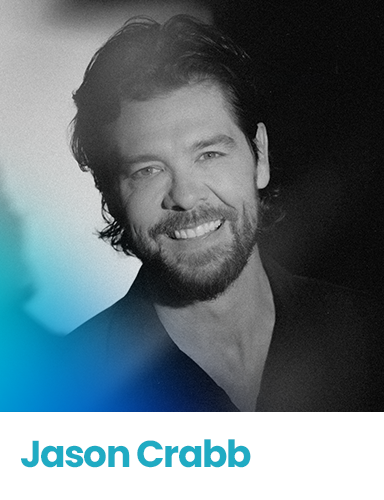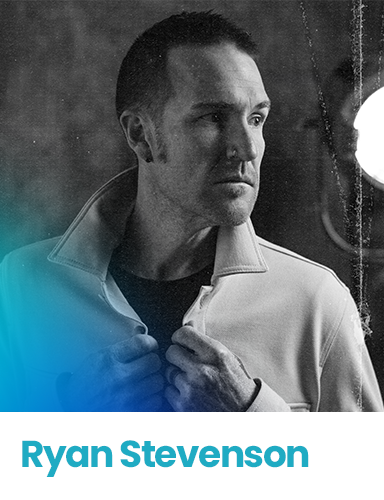
Why Christian Radio Must Understand AI Before Using It
“To the weak I became weak, that I might win the weak; I have become all things to all people, so that I may by all means save some.” — 1 Corinthians 9:22, NASB
When Paul said that, he wasn’t talking about technology. But he was talking about something every ministry leader needs to hear—especially those of us in Christian radio: know your audience before you try to reach them.
And in today’s world of artificial intelligence, that’s more important than ever.
I still remember the first time I tried to test AI in a Christian setting. I asked it to write a devotion, and it started quoting Buddha and Oprah before it ever got to Scripture. That was my wake-up call. If we’re not training the tool, the world is.
Recently, someone asked me if GPT stood for “God’s Powerful Technology.” I chuckled, then realized… that’s not a bad guess. Because most people—even inside Christian leadership—don’t know that GPT stands for Generative Pre-trained Transformer. And they’re even less familiar with what that means.
We’re hearing so much “high-level” talk about AI that we’ve forgotten the foundation: Do our people actually understand what it is?
Parable of the Radio Tower
Imagine building a powerful new radio tower—one with state-of-the-art reach and tools. But no one on your team is trained to use it. They start pushing buttons, flipping switches, hoping for ministry fruit. Instead, what comes out is static, confusion, and sometimes, a signal that doesn’t sound like Jesus at all.
That’s AI right now.
It’s a powerful tool. But if your staff doesn’t understand it—and if your audience can’t connect with it—it’s not ministry. It’s noise.
What AI Really Is (and Isn’t)
Artificial Intelligence isn’t magic. It’s not spiritual. It’s not evil or good. It’s a machine—a massive pattern predictor.
Parable of the Digital Librarian
Imagine a tireless librarian who has read every book, blog post, and comment online. You ask a question, and she gives you an answer—but she doesn’t know truth from error, wisdom from foolishness, or Scripture from secularism. She just grabs what sounds right and offers it up.
That’s what GPT-powered AI does. It pulls from a Large Language Model (LLM)—essentially a huge database of human text—to generate human-sounding responses.
And that raises a critical question for every Christian broadcaster:
Who trained your AI? And who’s training your people to use it?
Quote to Consider: “Discipleship Determines Direction”
AI is only as reliable as the data it’s trained on. If you’re relying on ChatGPT without any biblical filter, you might be discipling your listeners with content shaped by the world—not the Word.
As Dallas Willard once said:
“Discipleship is the process of becoming who Jesus would be if He were you.”
Well, AI becomes who we train it to be. And if we don’t disciple our AI—or the people using it—someone else will.
Filtered, Not Feared
AI can serve the Church. But it must be filtered, theologically grounded, and accountable.
That’s why I’ve been involved with creating tools like Ask Kingdom AI, my own custom GPT. It is a Large Language Model (LLM) that uses doctrinal boundaries and Scripture-driven safeguards to guide every response. AI isn’t your preacher, pastor, or prophet—it’s a research assistant. A fast one. A tireless one. But not a wise one.
“The fear of the Lord is the beginning of wisdom.” — Proverbs 9:10
AI doesn’t fear the Lord. That’s our job.
Tuning AI to the Gospel Frequency
Christian radio has always been about tuning into the right frequency—not just technically, but spiritually. AI adds a new layer to that calling. Just as you wouldn’t broadcast static or off-brand content over your station, you shouldn’t let AI broadcast unfiltered, unsanctified messages either.
To “tune AI to the Gospel frequency” means submitting it to the Lordship of Christ. Every response, every insight, every interaction should echo the tone, truth, and compassion of Jesus. AI must be aligned not only with your programming goals—but with God’s Word. Because at the end of the day, our ultimate broadcast isn’t content—it’s Christ.
Let’s Not Assume Our Teams Know
If you were to ask your on-air hosts, producers, or prayer line volunteers, “What is GPT?”—how many would know?
And even more important: do they know how to spot the errors in what it generates? AI does make mistakes. The Bible is inerrant.
Paul didn’t show up in Athens quoting Hebrew scrolls. He quoted their poets. He didn’t dumb it down—he brought the truth in a language they understood. That’s my model for AI.
Let’s disciple our teams—not just in theology, but in discernment with technology.
Quote to Carry with You: “We shape our tools and thereafter our tools shape us.”
— Marshall McLuhan
If you adopt AI without understanding it—and without training your people—you’re not shaping the tool. The tool is shaping you.
And that’s not ministry. That’s mission drift.
Final Word: Clarity Before Capability
Paul’s example in 1 Corinthians 9 teaches us to meet people where they are—not to impress them, but to reach them.
AI is powerful. But power without purpose is dangerous. Before we use AI to serve our listeners, let’s teach our teams what it is. Let’s build filters that reflect God’s Word. And let’s always—always—make sure the message is more important than the medium.
“Don’t conform to this world, but be transformed by the renewing of your mind.” — Romans 12:2
Because at the end of the day, AI won’t transform minds. But Scripture will.
Lorne Ray is CEO of Christian Media AI and Author of “AI Careful Thinking: What AI is and is Not”






















































































































